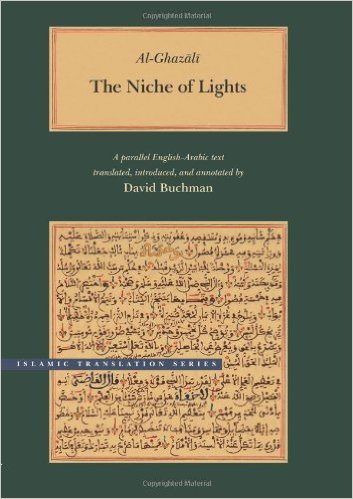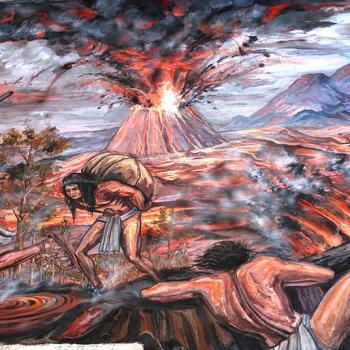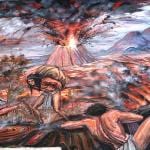
More than two decades ago — how things have changed since those sunny and optimistic times! — BYU’s Islamic Translation Series published its second book: Al-Ghazālī, The Niche of Lights, translated, introduced, and annotated by David Buchman (Provo: Brigham Young University, 1998). It’s fun to glance through the reader reviews of it at a site like goodreads, and to recognize the international character of its audience. We were doing important things then, and the future looked endlessly bright.
We’re reading The Niche of Lights in my small course on Islamic philosophy right now.
It’s a lengthy meditation, though a relatively brief book, on a passage in the Qur’an (24:35) that is often called ayat al-nur or “the verse of light.”) I’ve posted the verse, along with various quick translations of it (by me), on more than one occasion here on this blog. One of them occurs here. Additionally, in a column published in the Deseret News on 1 December 2016, I related a story involving me, the late Elder Neal A. Maxwell of the Council of the Twelve, and the temple in Washington DC:
“Light the world with his light”
In The Niche of Lights, al-Ghazālī tells his audience that he will be addressing very deep doctrine, doctrine that should not be revealed to everybody:
“You have knocked at a locked door that is not to be opened except for the firmly rooted possessors of knowledge. What is more, not every mystery is to be unveiled and divulged, and not every reality is to be presented and disclosed. Indeed, ‘the breasts of the free are the graves of the mysteries'” (2).
“When the people of arrogant delusion become many, it becomes necessary to preserve the coverings upon the face of the mysteries” (2).
However, he says, judgment is required. It’s wrong to reveal things to those who aren’t ready for them, but it’s also wrong not to reveal them to people who should appropriately know them:
He who bestows knowledge on the ignorant wastes it,
And he who withholds it from the worthy has done them wrong. (2)
And, says al-Ghazālī, coming to a full knowledge of God can be a dangerous matter. He quotes the Prophet Muhammad:
God has seventy veils of light and darkness; were He to lift them, the august glories of His face would burn up everyone whose eyesight perceived him. (1)












